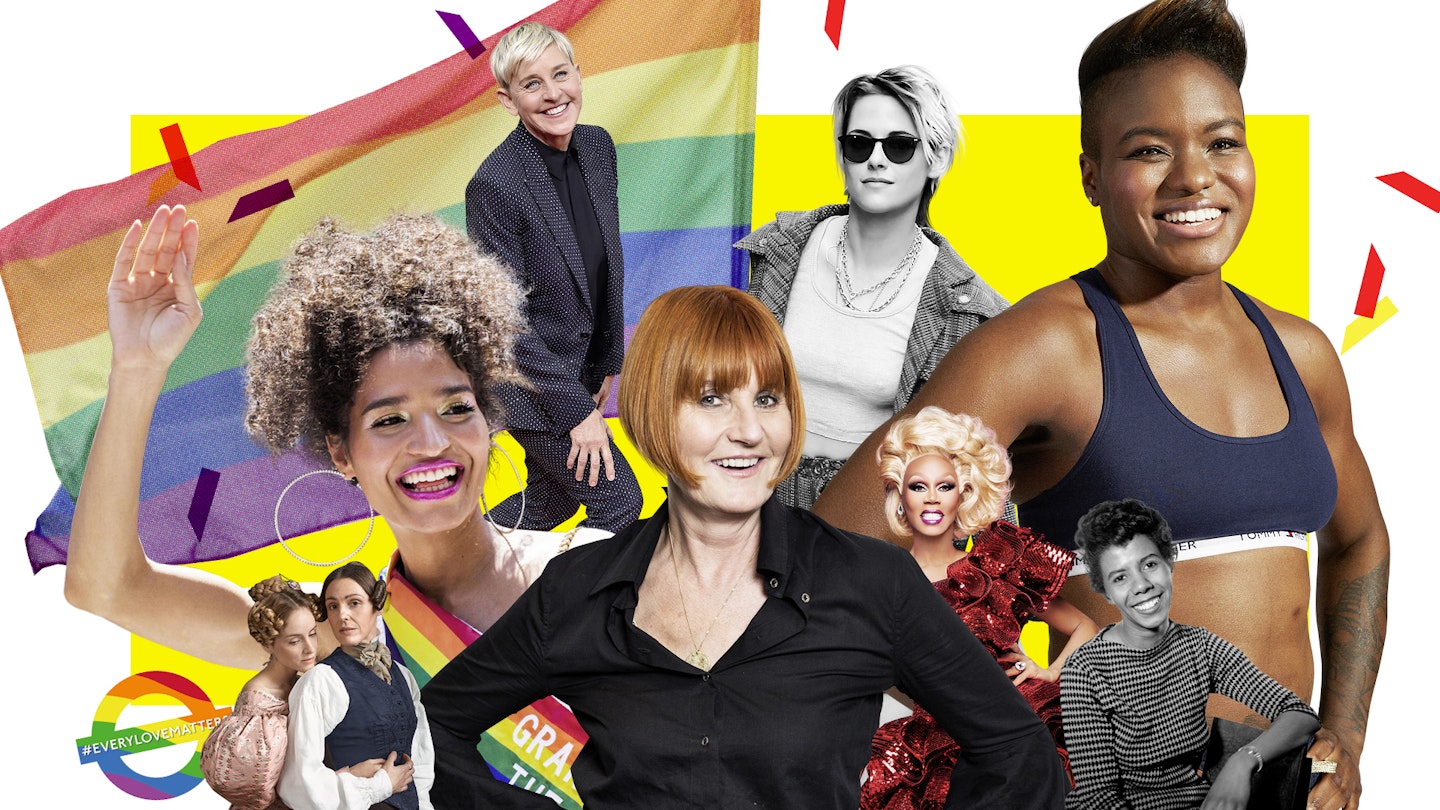One of the better things about the world we live in today is that it’s becoming easier for gay people to exist. It’s not perfect; being gay is still illegal in 70 countries and LGBTQI inclusivity is still being protested in schools, but there are more TV programmes, adverts, voices and platforms for people who have a niggling question mark about themselves.
Every gay person has their own journey of self-discovery – it may be straightforward, it may be long and emotionally complicated. I was at the end of my twenties when I accepted I was gay. Through a lengthy process of trial and error, and people telling me I was, I eventually had an epiphany. It felt like I’d previously been living by the light of a match, and now the curtains were open – sunlight flooded in. I’d buried my feelings because I lacked both the framework and the courage to say I fancied women. Growing up in the ’90s, being gay didn’t seem a possibility. It was illegal to teach homosexuality in school. ‘Gay’ was a derogatory term. I could list celebrities who were out on one hand.
Thankfully, this is changing. Pride sees LGBTQI people celebrating their sexual identity across the world. RuPaul’s Drag Race has been running for 11 glittery seasons. The Favourite was nominated for eight Oscars. Killing Eve was downloaded more than 2.6 million times in the first 36 hours. Huge conglomerates sponsor Pride, and yes, it can be seen as tokenism, but it carries importance; any small amount of visibility and normalisation is enough for someone, somewhere to feel valued. The world was built for straight people. Being gay or queer isn’t a choice, but coming out is and, by doing so, we are slowly building a world where no one lives the minor tragedy of not being able to be proud or, at least, comfortable, with who they are.
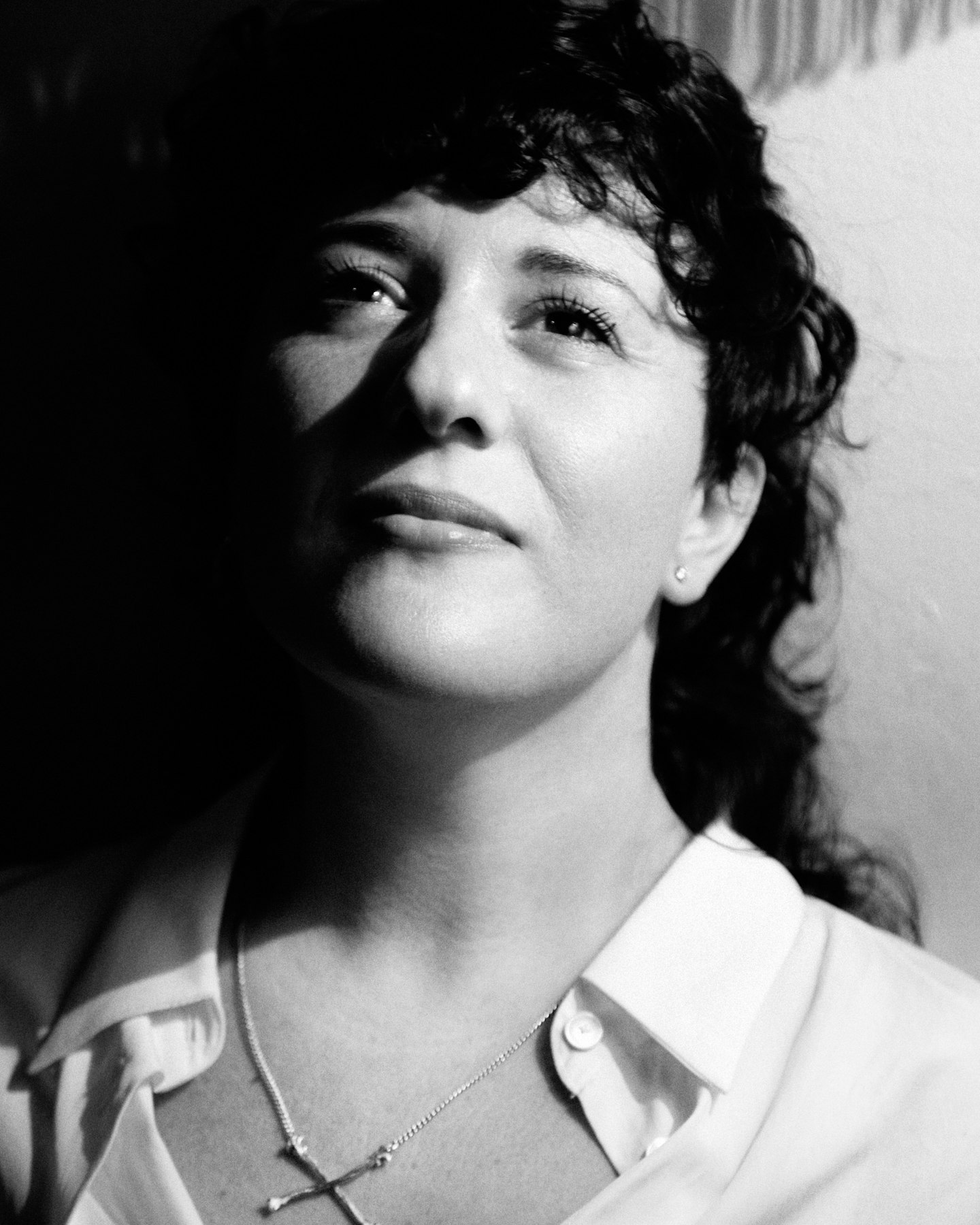
Paola Morabito
Film director in her forties, came out as fluid in the ’90s
From a young age, there were little tugs in my heart that would yank at my subconscious. It hurt when my friends at school would make fun of gays or lesbians, so I would keep pretty quiet, knowing very well I was attracted to both genders. From the age of 18, I was sexually fluid but, back then, being from an Italian family, I felt like I had to keep it a secret.
I came out to my friends that I was fluid when I left home, but didn’t come out to my family until I fell in love with a woman. Tellingmyparentswaslife-changing, because I had told the truth, no matter the consequences. I felt released and able to relax–Ihadfeltapartofmewastiedin knots and they were finally unwound. It’s more acceptable to be sexually fluid now, but I’m not sure it’s entirely understood. It’s not only the heterosexual world that can be divisive, I think some LGBTQI people find bisexuality confusing. The triumph of TV is that it has shed a light on the way other people dare to think and live, and it’s great that there are so many voices now heard.
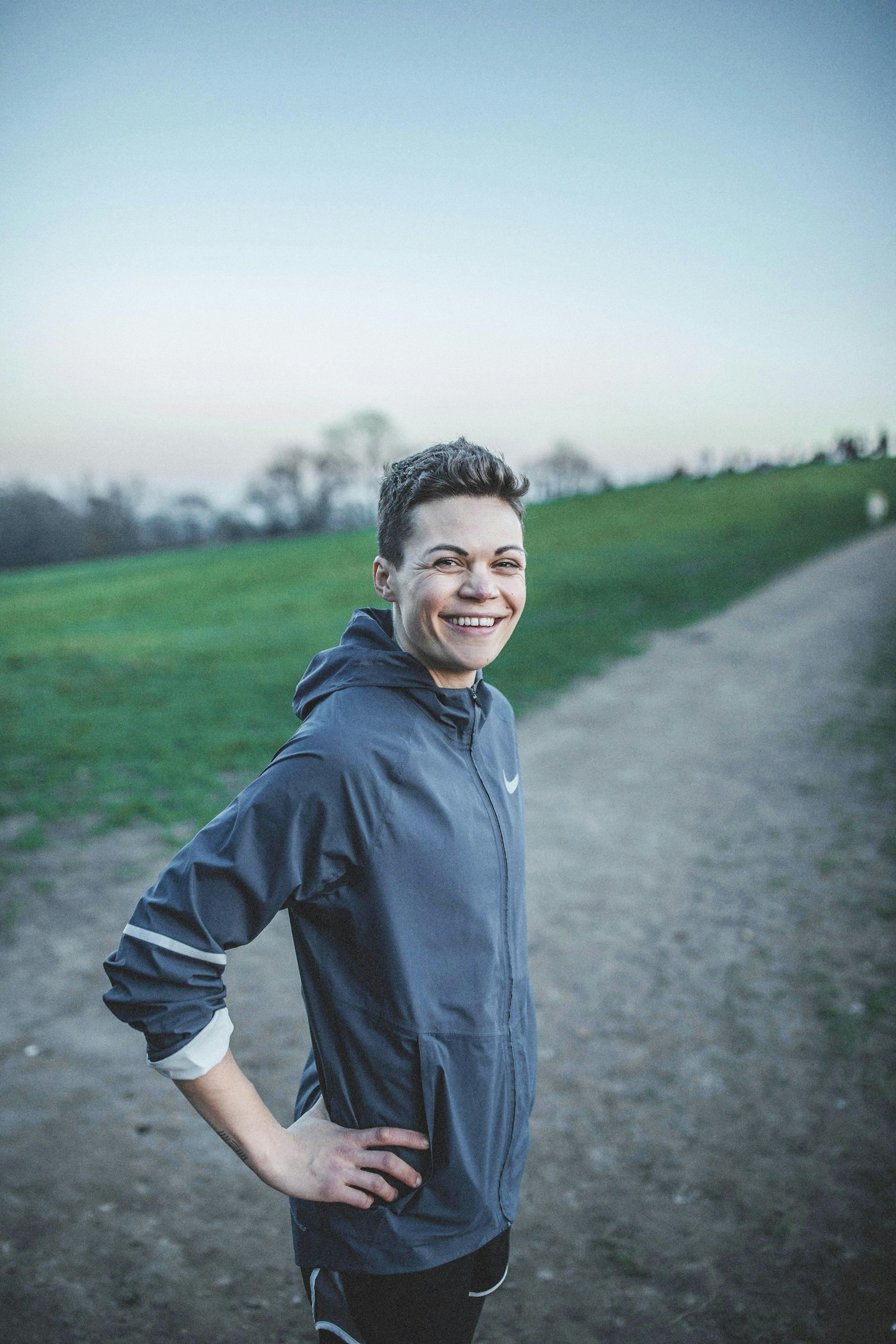
Georgie Okell
Personal trainer, 33, came out as gay in 2009
I remember fancying friends in primary school and thinking that was weird. Now I know it’s not. My first relationship with agirlwaswhenIwas15–wemeton holiday and I was like, ‘This is how it’s meant to feel.’ I kept it secret – I thought it was wrong and shameful. I didn’t know any gay people or have any point of reference. My parents thought I was rebelling and asked if I needed help. It compounded my fears – I decided I would be straight again and have secret affairs with women.
By my second year at uni, I was dating a man and secretly dating a girl and the pressure got too much. I got drunk at a party, cried and told my friends I was gay. Their response was, ‘We know!’ I had to keep coming out to my parents to emphasise that it wasn’t a phase – it took a long time before they’d accept it. My parents are, thankfully, wonderful now. I do think I still subconsciously try to find someone my family will like; we only have the context of what we are surrounded by and have learned. Now, the lines of sexual identity and gender are much more blurred.
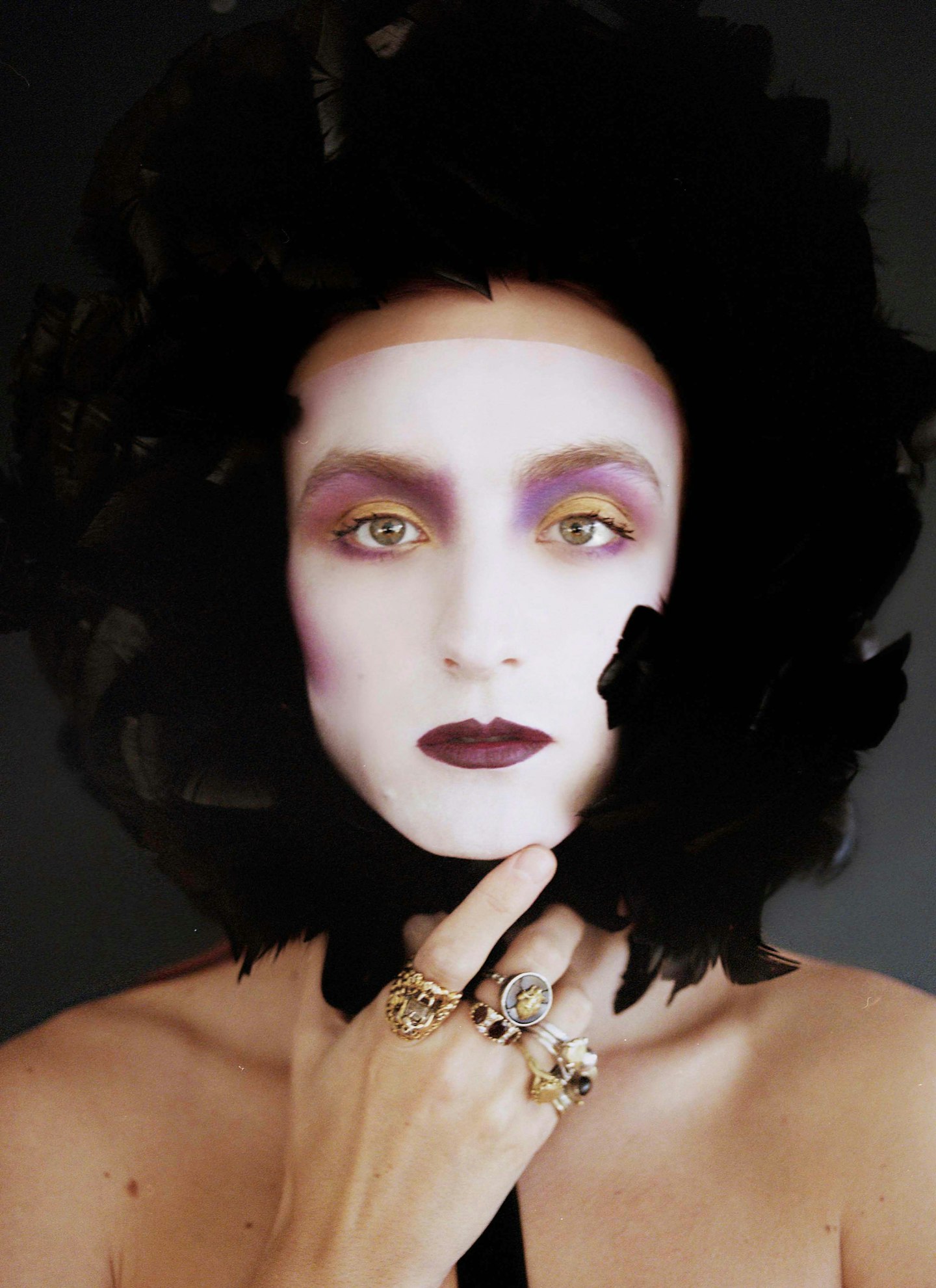
Harris Reed
Fashion designer, 23, came out as gay in 2005 and
when i was a kid, I lived in Arizona. I was about 10 when I walked over to my mum and stepdad and said, ‘I like boys.’ Parents at school had had their kids removed from my class – people were labelling me before I could label myself. I was confused as to why people would react to someone being different, why it made them feel so uncomfortable. My mum was like, ‘Oh honey, we know.’ My parents were so supportive, which led me to feel comfortable in my skin – any issues I had came from the outside world.
When I moved to London four years ago, I started going out and found a community of people who were expressing themselves differently. It made me want to be more expressive with the way I dressed and performed my life; I realised I was more than a gay man. Every time I said Iwasagaymanitmademecringe.I questioned if I wanted to transition but
I loved my body. I didn’t want to change myself but needed to find a new way of describing myself, so I went with ‘gender fluid’. People ask me what my pronouns are but sometimes I struggle. When I’m with someone romantically, I’m happy for them to call me he/him, while in public
I prefer they/them. I’m still developing my identity and my sexuality – thankfully, these days, you don’t have to be glued to just one thing. Feeling different can be extremely isolating, but no one is alone.
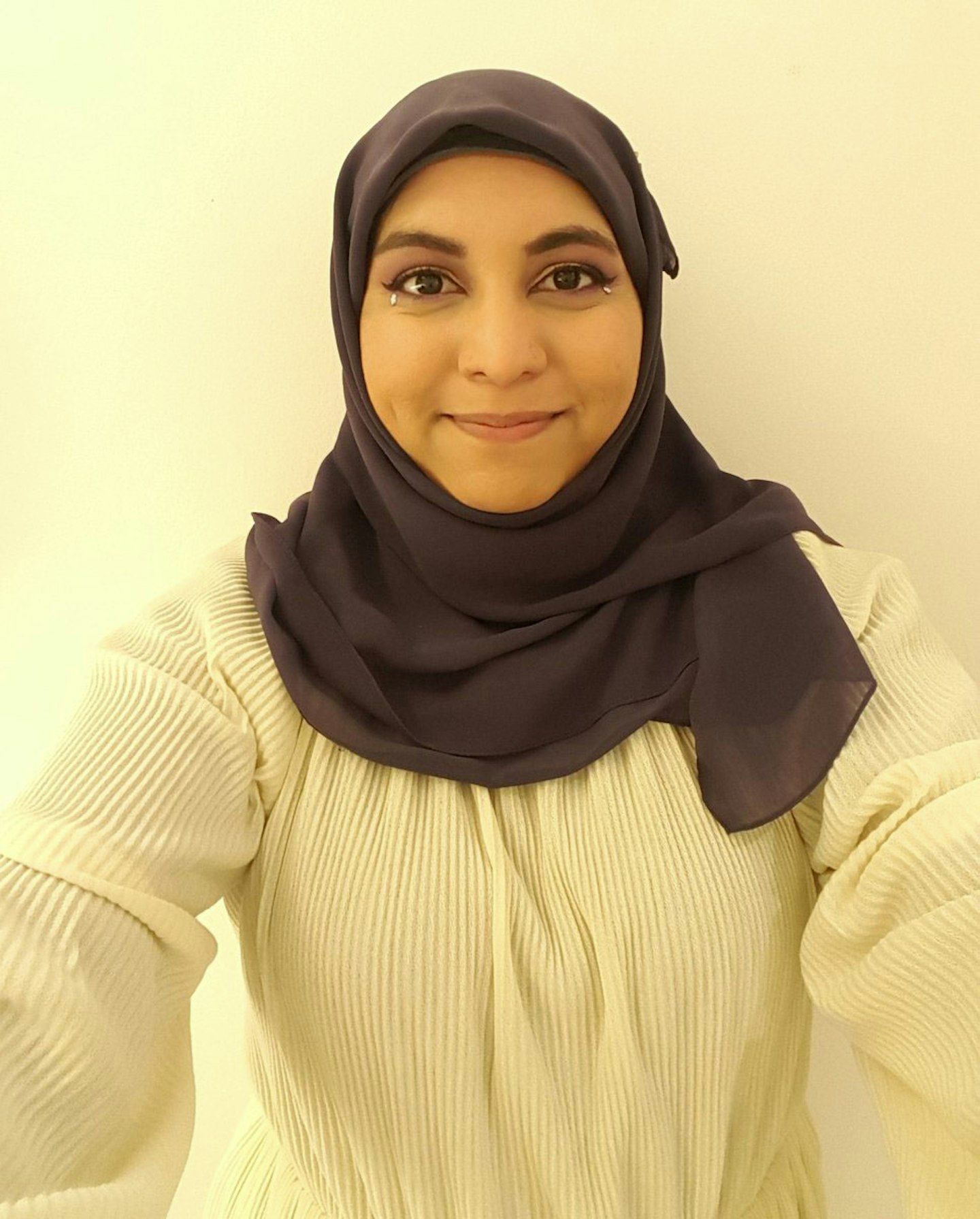
Hafsa Qureshi
LGBTQI activist, 26, came out in 2018 as bisexual
i realised i was a lesbian when I was 11, in 2005. People at school would talk about their crushes and I was drawn to women. I didn’t know what that meant until I googled it and found I was a lesbian, not a freak. I told my sister on National Coming Out Day, but she assumed it was a phase.
I came out as bisexual in 2018, the year I won Stonewall’s Bi Role Model of the Year. My family didn’t know what being bisexual meant, but they didn’t judge me.
Being a role model means I have a lot of visibility and my sexuality can’t be brushed under the carpet. The world says you can’t be queer and a Muslim but I love my faith, so I reconciled it with the fact that Muslims have a struggle or ‘jihad’ in life. This is mine. I’ve often felt I wasn’t allowed to be who
I am, which led to a lot of self-hatred, but I got over it with time and therapy. I realised that the people who truly care about you will love you no matter what. I identify as bisexual but refer to myself as queer. Being a person of colour and of faith in the LGBT community, there’s not often space for us, and I find the word queer very comfortable. I am queer. I’m not a stereotype.
READ MORE: Famous LGBT+ People Aren't 'Coming Out' Anymore - They're Just Living Their Lives
READ MORE: Has Pride Has Become A Commercial Cash Cow?
